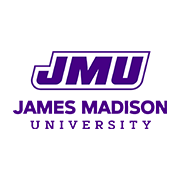Recommended Schedule for Majors
First Year
Note: Other recommended first-year courses include BIO 203. Viral Discovery or ISAT 203 and BIO 204. Viral Genome and Bioinformatics or ISAT 204. The total credit hours listed below do not reflect this recommendation.
-
BIO 140. Foundations of Biology I [C3NS] 4.00
-
BIO 150. Foundations of Biology II 4.00
-
CHEM 131. General Chemistry I [C3PP] 3.00 1
-
CHEM 131L. General Chemistry Laboratory [C3PP] 1.00 1
-
CHEM 132. General Chemistry II 3.00
-
CHEM 132L. General Chemistry Laboratory 1.00
-
Quantitative course 4-6 Credit Hours 1
-
General Education: Cluster One 9 Credit Hours
Total: 29-31 Credit Hours
Footnote
1 Fulfills General Education: Cluster Three. Some students may be advised to postpone their general chemistry courses if their math placement scores are not sufficiently high.
Second Year
-
BIOT 260. Biotechnology Seminar 1.00
-
ISAT 305. Instrumentation and Measurement in Biotechnology (0, 2) 1.00
-
BIO 240. Genetics 4.00
-
BIO 245. General Microbiology 4.00
-
CHEM 241. Organic Chemistry I 3.00
-
CHEM 242. Organic Chemistry II 3.00
-
CHEM 242L. Organic Chemistry Laboratory 2.00
-
Quantitative course 3-4 Credit Hours
-
General Education: from Clusters Two, Four and Five 9 Credit Hours
Total: 30-31 Credit Hours
Third Year
-
CHEM 361. Biochemistry I 3.00
-
or
-
BIO 361. Biochemistry I 3.00
-
CHEM 366L. Biochemistry Laboratory 2.00
-
BIO 480. Advanced Molecular Biology 4.00
-
Biotechnology Electives 4 Credit Hours
-
Physics courses 8 Credit Hours
-
General Education: from Clusters Two, Four and Five 7 Credit Hours
-
Electives 4 Credit Hours
Total: 32 Credit Hours
Fourth Year
-
ISAT 456. Ethical, Legal, & Social Implications of Biotechnology 3.00
-
ISAT 451. Biotechnology in Industry and Agriculture 3.00
-
Biotechnology Electives 11 Credit Hours
-
General Education: from Clusters Two, Four and Five 6 Credit Hours
-
Electives 6 Credit Hours
Total: 29 Credit Hours






